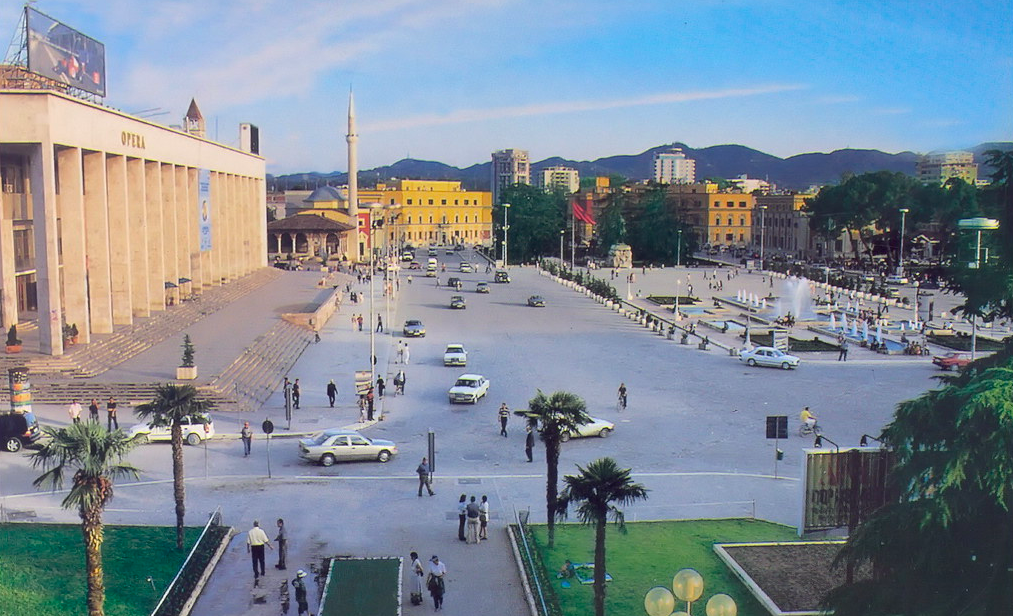In another take on flawed electoral accountability, Albana Shehaj (Postdoctoral Researcher at the Center for European Studies at Harvard University) argues that corrupt politicians are too easily able to use state resources to buy off voters. We should focus our efforts on constraining their ability to strategically allocate the spoils of corrupt office.

Tirana, Albania’s capital. Credits: Vladimir Tkalčić (CC BY-NC-ND 2.0)
Corruption has been a tenacious staple in the post-communist transition of the Balkan states and remains a grave threat to the region’s democratic consolidation. Corruption is substantial, frequent, and pervasive across the Western Balkan states of Albania, Bosnia and Herzegovina, Kosovo, Montenegro, North Macedonia, and Serbia, with Transparency International Corruption Perceptions Index 2018 (CPI) scores ranging from 36 in Albania and North Macedonia (out of 100, where 0 is most corrupt and 100 least) to Serbia’s 39. That is considerably lower than Western Europe’s average CPI score of 66 and below the world’s average score of 43.
Whether presenting itself in the form of bribery, clientelism, embezzlement, or organized crime, corruption has consistently maintained its presence in the Western Balkans and increasingly permeated the very institutions established to control it, including law enforcement, the judiciary, legislature, and the presidency (Transparency International). In the case of Albania, the involvement of former Interior Minister Saimir Tahiri in a drug-trafficking network operating on both sides of the Albanian-Italian border points to the extent to which corruption permeates the country’s highest political and administrative structures. Albania’s current President, Ilir Meta also shares a political past marked by several allegations of official misconduct.
Corruption impairs the region’s economic prospects and further weakens the vulnerable political structures of the Western Balkan states. From an economic perspective, research shows that corruption deters foreign direct investment, hinders international trade, and widens the income inequality gap by misappropriating public resources away from intended programs and social groups. From a political perspective, corruption undermines institutional effectiveness, erodes public trust in democratic structures, and ultimately devastates the region’s long-term democratic prospects.
These dangers are reflected in the post-2005 decline of democratic stock across the region. With the exception of North Macedonia, the Democracy Score of every country in the Western Balkans region has declined over the last decade, signaling a crisis in the legitimacy of democratic institutions and the looming danger of rising authoritarianism in the region.
There is one dimension of this phenomenon that is currently poorly understood: citizen attitudes towards political accountability. Why are citizens often so unwilling to exercise electoral accountability and utilize their role in constraining the proliferation of political corruption?
There often appears to be a misalignment between voters’ political preferences and patterns of accountability across the region. As expressed by public protests in several countries within and beyond the Western Balkans region, citizens are growing increasingly resentful of corruption. In Albania, voters have risen up in multiple anti-corruption protests over the last few years, most recently in December 2018. Similarly, in Bosnia and Herzegovina thousands of voters gathered to demand the resignation of deeply mistrusted interior minister Milorad Dodik. Similar anti-corruption protests were observed in Romania in August 2018, Bulgaria in October 2019, and several other countries across the post-communist geopolitical space. Yet electoral accountability and punishment of corrupt politicians does not consistently emerge, allowing the political survival of corrupt representatives across the Western Balkan states.
The question of why voters tolerate corruption even as they rise in protests against its existence is of concern given the proportion of the regions’ citizens who are both well-informed and highly critical of their governments’ corrupt tendencies. In the case of Albania, when asked which governmental structures they believed to be most corrupt, 52% of respondents identified government officials, 66% the legislature, 72% political parties, and 82% listed judicial structures (Our World in Data). Widespread corruption is consistently identified as the most pressing national issue by citizens of Albania and its Balkan neighbors (EBRD).
The question of when voters choose to hold their politicians accountable and when they turn a blind eye to corruption remains critical to our understanding of why corruption persists in the Western Balkan states. In the Albanian context, my research shows that corrupt political elites strategically compensate citizens for their political misconduct by distributing greater shares of resources – whether fiscal allocations, unconditional transfers, public and private procurement, or strategic tender provisions – to buy off voters.
This suggests that our priority should be to constrain governing parties’ ability to engage in compensatory, allocating strategies; as well as to improve citizens’ economic prospects in ways that outweigh the payoffs from corrupt parties’ compensatory tactics. The first measure can be achieved by establishing institutions – under cross-party control – that limit corrupt parties’ allocating authority and restrict unilateral access to domestic resources or international fiscal inflows. The second objective can be achieved via policies aimed at increasing citizen opportunities – including employment, education, and social benefits – in ways that enhance their long-term gains and shift their accountability calculus away from the short-term benefits of party payoffs.
To avoid corruption persisting and chipping away at the institutional legitimacy of the Western Balkan states, we must implement policies that narrow the gap between the opportunities and constraints that governing elites face to engage in corruption and widen the gap between short term payoffs and long-term benefits for voters making accountability decisions. A failure to address either measure diminishes accountability and threatens the development of a robust political culture in ways that may be detrimental to the political stability and democratic prospects of the Western Balkans, a region that is neither a stranger to authoritarian rule, nor very distant – in terms of geography and shared communist past – from the increasingly authoritarian neighboring states of Turkey, Hungary, and Poland.
This is the eleventh blog in a series hosted in the run-up to the event New Actors and Strategies for Fighting and Investigating Corruption in the Western Balkans at the Harriman Institute, Columbia University (7-8 November 2019).


Leave a Reply